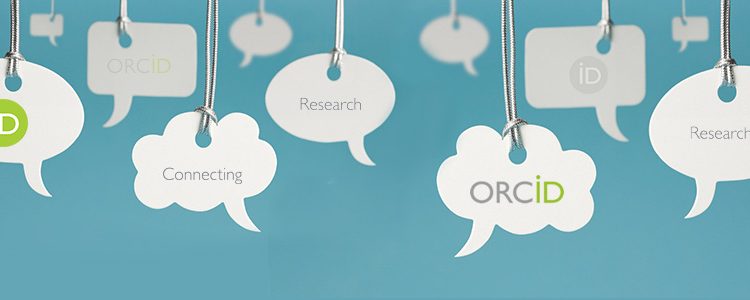If You Are a Researcher, Create an ORCID iD Now!

Knowing a researcher’s name can be useful when trying to find research they had published. Such a search is often conducted by potential or current employers or funding agencies. This process of tracking a researcher’s work is complicated if more than one researcher has the same name. When compiling the list of a scientist’s publications for a grant or performance review, this could end up being problematic. Here is where ORCID iD comes in.
What’s In a Name?
ORCID is a non-profit organization that issues unique identifiers to individuals who register on their site. This identifier can be associated with all the research output generated by the scientist. Unlike a name, which can occur many times in a population, the ORCID iD is unique. This means that even if you change your name, field of research, or country, it will still be able to unify all your scholarly output. There can be no ambiguity about who you are and which body of academic research belongs to you.
Many academic journals request ORCID identifiers during the course of submitting a research article for peer review. This allows journals to associate the authors of a paper with their unique identifier. eLife has announced that when corresponding authors share the manuscript proof with their co-authors, they will be required to sign in with their ORCID iDs. This will ensure that eLife publications have the ORCID iDs for not just the corresponding authors but all the co-authors as well. This is not surprising since eLife, The Royal Society, and PLOS published an open letter committing to include ORCID iDs in their publication workflows.
Why ORCID?
There are many benefits to using ORCID. One of the benefits of having an ORCID identifier is that it solves the ambiguity around authors with similar names. ORCID identifiers also have the added benefit of being indexed by Google Scholar. This makes it easier for others to find your ORCID-linked work. The identifier can even be linked to major databases such as Web of Science and Scopus. During the registration process, ORCID collects certain basic demographic information along with your research outputs. Increasingly, publishers and grant organizations are integrating ORCID iDs into their workflows. Organizations like the Wellcome Trust, Nature Publishing Group, and Thomson Reuters are representatives on the ORCID Board of Directors. This means that, for example, if you give a journal publisher your ORCID identifier, this demographic information will be auto-populated into the journal’s data fields.
This kind of connectivity also means that when a new research article is published, your publisher can send this information directly to ORCID, automatically updating your ORCID profile. This saves you from manually updating your ORCID profile every time you have work published in an academic journal. In addition, since the ORCID identifier is not linked to an institution or field, it stays throughout your career. This means that your information moves with you seamlessly through all your life changes. Since your research output is associated with your ORCID iD, it can be used with services that show the impact of your work. Linking your profile with your ORCID identifier, therefore, means that your research outputs can be automatically added to your profile. Finally, if you give your research institution your ORCID identifier, they can use it to capture all your research output. If this is done for all the researchers then it can be used to ensure the completeness of data that is used to constitute institutional rankings.
Importance of ORCID
Given the impressive list of benefits, it is no surprise that many journals now require authors to have an ORCID identifier. Adding to this, Overleaf now automatically includes author ORCID identifiers when submitting articles to participating publishers. This is part of the partnership between Springer and Overleaf, which allows for direct submission to over 20 journals. The first two journals to receive Overleaf submissions under this arrangement are Celestial Mechanics and Dynamical Astronomy and the Journal of Mathematical Biology. Both journals use Editorial Manager for their submission and peer review process. Editorial Manager also accepts ORCID identifiers.
Obtaining an ORCID identifier and including it when you submit an academic article is useful for several reasons. The data in your ORCID profile can be used to automatically populate fields in your journal’s online submission forms, thus saving you time. It also ensures that new research output is permanently linked to you as soon as the research article is published. Presently, more than 3,000 journals already require ORCID iDs from corresponding authors. A recent survey of about 6,000 researchers found that 70% would welcome compulsory use of ORCID iDs in publishing workflows. Taking into consideration that major publishers have committed to requiring ORCID iDs during the publishing process, it is safe to say that ORCID iDs are here to stay.









